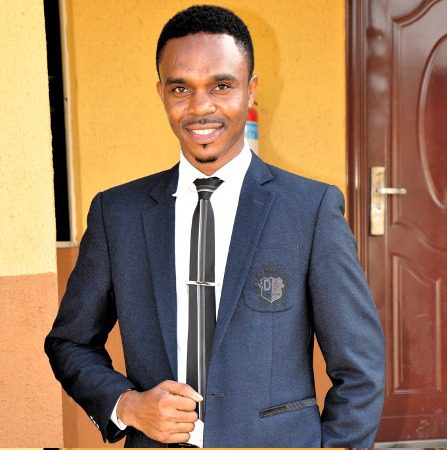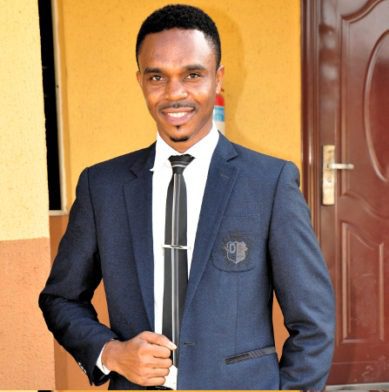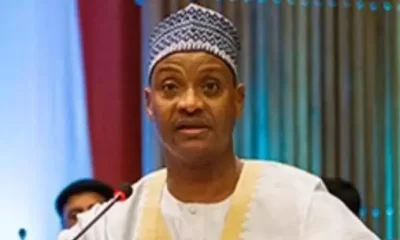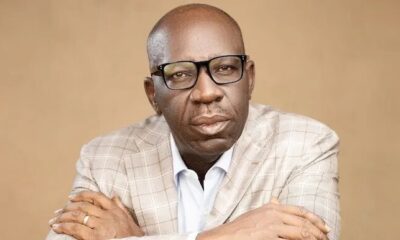National Issues
The Awkwardness of the Ministerial List and the Screening Process


Jeff Okoroafor
I have already talked about the ministerial list and how negative a change it represent. I’ve also condemned the fact that President Muhammadu Buhari forgot the place of women and youths in the sustenance of democracy and governance. What they both fought for during the March 28 presidential election. How and what the word CHANGE represent in the street where the majority of Nigerians live. In this piece, I have no interest whatsoever in reiterating my stance. My interest rather have shifted to an even more awkward position the list put not just the legislators but also the Nigerian masses. The position where very little can only be done. Simply put, the ministerial list is awkward, the screening process for the nominees even more awkward.
Let me explain to you the position of the Senate on the list, the angle they have taken towards screening of the selected nominees, and what it all means. Recently the chairman of the adhoc committee on media and publicity, Senator Dino Melaye, stated that every nominee must provide a certificate of assets declaration issued by the Code of Conduct Bureau (CCB). Beautiful! That the senate shall be relying on Section 147 of the Constitution; there shall be such offices of the ministers of the federation as may be appointed by the President. And that they will strictly be adhering to it, meaning that there will be ministers from each state of the federation in compliance with the constitution. Terrific! The part sets the pendulum rolling to a different direction is where he stated that “every ministerial nominee must be endorsed by at least two senators from their state”. The implication of this condition is huge the way I see it. It means that the senators can decide who to accept and who not to, irrespective of their competence. Many of the screenings we’ve had in the past comes with too many “please take a bow and leave” comments. With this decision by the senate, we are definitely going back to where we thought we’ve left. For instance, senator Udoma Udo-Udoma who has been a two time senator, a well known face and name in the senate, will obviously get the “take a bow and leave” instituted signature.
Nigerians don’t want a senate that play god. A senate that instead of playing the national card, opens the door to personal interest and spite. With the already made decision of the senate, many nominees will be witch hunted. A good example that have already taken the center stage is the case of Amina Ibrahim. Several petitions has been thrown in by senators from her state. The “negative” here far outweighs the “positive” and therefore shouldn’t be allowed to stand. If not properly handled, it may jeopardize everything and delay an already delayed democratic and constitutional process.
What questions can they asked?
Just like in the time of election, Nigerians were following and penning down campaign promises. They wanted to know what a candidate who is running as a governor, senator or an honourable member is offering them. The knowledge of the offices they were running enabled them to ask the right questions, to compare and contrast the answers given with what the right thing was and what they wanted. Without knowing the portfolios that these nominees will be handling, it will be very difficult if not impossible, for the senate to ask targeted questions. Questions that leads to national development. A nominee who eventually becomes a minister, if or when under-performed and grilled by Nigerians on his failure to fulfill his promises, can say he never knew he was going to head such ministry therefore need time to understand how things work. Screening without a known portfolio will afford the nominees a great amount of opportunity to speak to issues in general terms. They will speak more on the problem of the country and perhaps harmer on a general solutions rather than proffering specific solutions a particular sector of the ministry is having. This isn’t what Nigerians want.
For every ten countries in Africa, at least two provides portfolios for their ministerial nominees even when the constitution doesn’t expressly compel them to. East Africa -Kenya and Tanzania are a good example. In the West, quite a number of them do. But should we even be looking for examples to sight? Can’t we do it because it’s the right thing to do? We know its not in our constitution, but ethics and the principle of efficiency requires that it’d there. Without an apparatus to work, no matter how skilled you are, you cannot perform the job well. President Buhari should look inside once again, and see what he can do to ease the work of the senate as well as Nigerians who are patiently waiting for this change to happen.



















